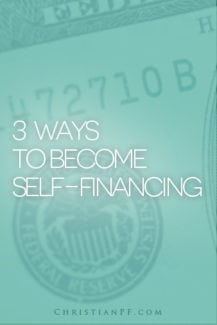There are all kinds of lists that will proclaim this or that book to be the top financial book available. But we’re going to take a different approach here. Our list is going to focus on the books that are a benefit to you in five fundamental areas: Getting out of debt Changing your attitude […]
12 Things You Should Stop Doing That Are Stealing Your Joy
Sometimes we’re unhappy, but we don’t know exactly why. Even if our lives seem to be happy and successful on the outside, we may not feel that way deep inside. If you feel that way, it’s likely that there are some things you should stop doing that are stealing your joy. Here are several of them . . . .
7 Things Every Christian Should Do Every Day
As Christians, we never want to get into the legalistic practice of creating “to do lists” that we must follow in order to define ourselves as believers. But at the same time, there certain things every Christian should do every day in order to stay in faith. “But be doers of the word, and not […]
11 Things To Never Forget – Even On Your Worst Day
There are bad days, and then there are really bad days, maybe even rising to the level of your worst day. We can probably separate worst days from bad days based on the impact that the day will have on your life. For example, on a bad day the damage is usually limited to today […]
Is Refinancing Your Mortgage Always a Good Idea?
The possibility of a lower monthly house payment would be welcome by any homeowner, but lower payments aren’t always what they seem. And what about those who are not in a position to refinance — are they out of luck?
The 3 No-brainer Investments That Should Come First
Many investors are more than a bit intimidated when it comes to getting started. They mistakenly assume that investing needs to be complicated in order to be successful. That belief may even cause them to delay investing, or even to never get on board at all. In truth however, investing can be incredibly simple ”“ […]
3 Ways You Can Become Self-Financing
Millions of people are on a debt treadmill. It starts the first time you swipe a credit card to cover a shortfall in your budget. Do that enough times, and before long you’re working to pay credit cards and other forms of debt.
How Much Do You Need to Retire?
This is the most basic question when it comes to retirement planning – how much do you need to retire? You really can’t know if you’re saving enough money for retirement unless you first decide what the target is, and that’s what we’ll show you today. The Biblical view of retirement Interestingly, the Bible is […]











